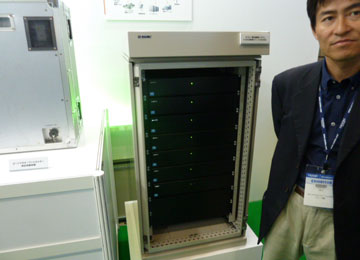This move shows us the potential of Electric Cars as the Energy Transition game changer and place the further Lithium batteries advance at its foundation. Sony was one of the pioneers in the Lithium battery space according to this new must read book for all interested in this subject. If you are still wondering why Lithium became the Energy Storage industry standard, it is just right for you and should be your first investment in the lithium space. Battery space is getting crowded: competition will lead to the better and cheaper lithium batteries. As you already know, our approach is to invest in the Sugar business at this stage - Lithium which is needed for all this battery makers - before we will find our Coca-Cole in this electric space.
"Lithium Charge: Bottled Lightning: Superbatteries, Electric Cars, and the New Lithium Economy. Finally, we have the first book about the Lithium economy and Electric Cars - this Bull is still in its infancy now, just look around - how many Electric Cars can you see. For us it is like Gold and Silver in 2003 when nobody cared about it. This mega trend - Peak Oil multiplied by Inflation - will be even more powerful. Ugly Truth about diminishing Oil supply with constantly increasing demand will make its way to the headlines again with higher Gas prices. Be prepared and tell the others - this time is coming and we can be ready for it. Time to act is now."
Greentechmedia:
MICHAEL KANELLOS: JULY 16, 2011
Sony to Enter EV Battery Market
Sony already produces batteries for grid storage. Now they are eyeing cars.

The company that helped bring the lithium ion battery to life is expanding its wings.
Sony said this month that it will produce lithium ion batteries for electric vehicles and start selling them by the middle of the decade.
"Sony's batteries have an advantage of long life, and they do not have to be frequently replaced," the company said, according to Nikkei Electronics. "Therefore, they are suited for EVs. We want to enter the market by the mid-2010s."
Sony has already made a prototype and is now under negotiation with several automakers in and outside Japan. It aims to sell Li-ion batteries for use in not only EVs but also hybrid vehicles and plug-in hybrid vehicles. Rival Panasonic already produces batteries for Tesla Motors and Toyota.
The Japanese giant may be having trouble in its consumer division, but like Toshiba, Sharp, Panasonic and other conglomerates, the company still wields impressive hardware engineering divisions.
Sony rolled out the lithium ion battery for notebooks and consumer electronics back in the early 90s. It was arguably a first. ExxonMobil actually produced the first lithium battery, way back in 1977. Exxon's battery relied on a different chemistry and the oil giant lost interest in the project after oil prices plunged in the early 80s.
Last year, Sony showed us lithium phosphate battery packs it produces for grid storage at Ceatec, a large tech trade show outside of Tokyo. (See picture.) Lithium phosphates don't have the same energy density as lithium cobalt batteries but are generally safer and last longer. Conventional lithium batteries might only endure 500 charge cycles. The lithium phosphates can endure 3,000 to 4,000 cycles, according to Masayuki Yasuda, senior general manager of the new business division at Sony Energy Devices. The battery pack was one of the finalists for a smart grid award at the show. (Disclosure: I headed the award committee.)
“That’s maybe ten years,” he said. “They are improving in energy density but the important part is safety and longer cycle life.”
Some companies are producing lithium phosphates for the car market so these two applications might be based around similar cells.
All of the major Japanese manufacturers have EV plans. Nissan has been selling Leafs for close to nine months. Mitsubishi brought out an all-electric in 2009 in Japan and will introduce a version for the U.S. in a few months that will sell for $28,000. I drove it in Japan last year. It looks a bit odd from the outside but it drives quite well."


No comments:
Post a Comment